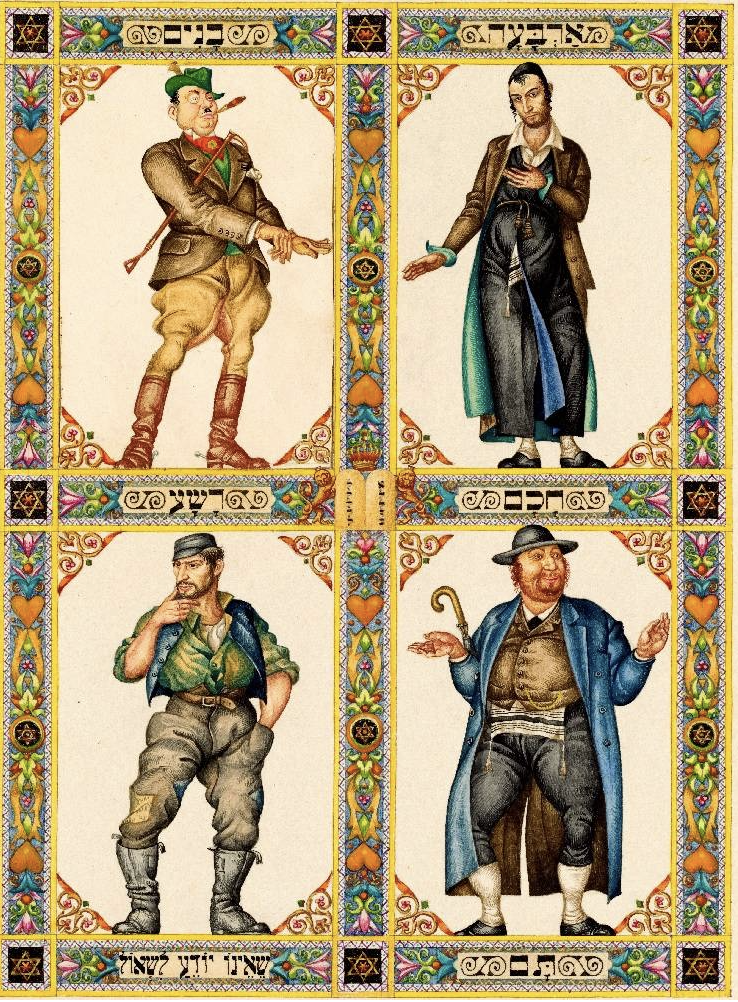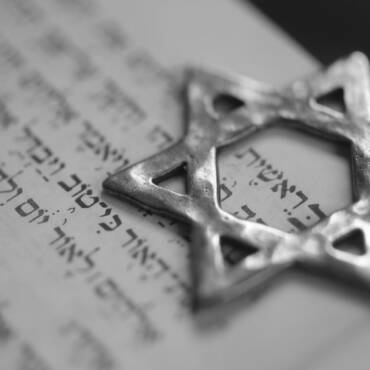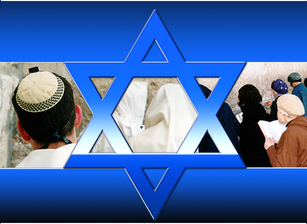Passover: The Four Sons

By Sam Nadler
Passover was instituted to commemorate God’s deliverance of Israel from Egypt. It was a time to remember His mighty works to redeem His people, and also a time to prepare His people for the greatest deliverance and redemption of all: that being in Messiah Yeshua, the Passover Lamb of God (see John 1:29; 1 Corinthians 5:7).
“Tell Your Children”
In preparing Israel for the coming Redeemer, Passover was to be kept in such a way that the children were to be especially addressed that they might “get the message”, and therefore remember and be ready for the Messiah. But there are children, and there are children. Not all are alike, some admittedly are uninterested in spiritual matters. Still Scripture expects us to “train up a child in the way he is to go” (Proverbs 22:6), despite the child’s understandable spiritual immaturity and resistance.
Scripture discussed Passover with four different types of children in mind, all of whom are to be taught about Passover and the redemption of God. These four sons are well known in Jewish Passover traditions, and are included in the traditional Passover Haggadah as the wicked, simple, young and wise sons.
The Wicked Son
First there is the Wicked Son: “And when your children say to you, ‘What does this rite mean to you?’ you shall say, ‘This Passover sacrifice is to the LORD who passed over the houses of the sons of Israel in Egypt when He smote the Egyptians, but spared our homes.’” (Exodus 12:26, 27).
He is considered wicked because he asks, “What does this rite mean to you?” He does not personally identify with the spiritual activity and removes himself by seeing it only applying to you, and not himself. Even so, the succinct answer to his question is clear on judgment upon sin (“He smote the Egyptians”), yet is fulfilled with grace and hope. “My son, this grace is seen in the sparing of judgment that the Lord provides through the lamb” (Passover sacrifice). May this child come to know deliverance from sin’s judgment, as he trusts in the “Messiah, the Passover Lamb sacrificed for us” (1Cor. 5:7).
The Young Son
You shall tell your son on that day, saying, ‘It is because of what the Lord did for me when I came out of Egypt.’ “And it shall serve as a sign to you on your hand, and as a reminder on your forehead, that the law of the LORD may be in your mouth; for with a powerful hand the LORD brought you out of Egypt. Therefore, you shall keep this ordinance at its appointed time from year to year.” (Exodus 13:8-10)
He is called the Young Son, for he is too young to even ask about the Passover, and must be told without asking. Yet even here the Scripture encourages us to take a loving initiative in sharing the truth of God’s redemption with all our loved ones, no matter what their aptitude for understanding may be. The answer is simple, and yet speaks profoundly of our appreciation of the Lord’s grace and love toward us. “My son, ‘It is because of what the Lord did for me when I came out of Egypt’, how He delivered us from bondage.” No matter how little a child may be, our grateful attitude is a loving witness and testimony to His gracious work in the Passover. The child knows that the parent is free from bondage because of the Passover Lamb. For us the Passover is as a sign on all our activities and attitudes (“as a sign to you on your hand and as a reminder on your forehead”). No matter how young the child may be God’s grace is still sufficient for them (“for with a powerful hand the LORD brought you out of Egypt”).
The Simple Son
“And it shall be when your son asks you in time to come, saying, ‘What is this?’ then you shall say to him, ‘With a powerful hand the LORD brought us out of Egypt, from the house of slavery. It came about when Pharaoh was stubborn about letting us go, that the LORD killed every firstborn in the land of Egypt, both firstborn of man and the firstborn of beast. Therefore, I sacrifice to the LORD the males, the offspring of every womb, but every firstborn of my sons I redeem.’ So it shall serve as a sign on your hand and as frontlets on your forehead, for with a powerful hand the LORD brought us out of Egypt.” (Exodus 13:14-16)
He is called the Simple Son, for he is not discerning enough to ask but the most rudimentary of questions, “What is this (Ma zote)?” Even the most undeveloped question gets a full answer that speaks of God’s powerful and gracious deliverance. “My son, it is remembered that the Passover spared the firstborn children that were under the blood of the lamb” (see Exodus 12: 7, 13). The grace upon the Jewish firstborn children is important since it speaks of God’s calling upon Israel (see Exodus 4:22, 23). This calling is remembered traditionally through the Pidyon Haben, dedication of the first-born by every observant Jewish family. Passover reiterates that this high calling of Israel as the people of God is not based upon merit or innate qualities, but upon God’s gracious provision in the Passover sacrifice.
The Wise Son
Fourthly and finally, we read of the Wise Son: “When your son asks you in time to come, saying, ‘What do the testimonies and the statutes and the judgments mean which the LORD our God commanded you?’ then you shall say to your son, ‘We were slaves to Pharaoh in Egypt, and the LORD brought us from Egypt with a mighty hand. Moreover, the LORD showed great and distressing signs and wonders before our eyes against Egypt, Pharaoh and all his household; He brought us out from there in order to bring us in, to give us the land which He had sworn to our fathers. So the LORD commanded us to observe all these statutes, to fear the LORD our God for our good always and for our survival, as it is today. It will be righteousness for us if we are careful to observe all this commandment before the LORD our God, just as He commanded us.’” (Deuteronomy 6:20-25)
He is considered wise for he asks an intricate question regarding the reason for the commandments of God (“the testimonies and statutes and the judgments”). Despite his wisdom and curiosity he is taught that the wisest of us were mere slaves, and would still be, but for the Lord’s powerful and miraculous work to deliver us. “My son, it is not our wisdom that delivers us but God’s grace and power! He delivered us and brought us into the Promised Land not because of our goodness, but to fulfill His promises. God is faithful. We are to trust in His promises and follow His word, not our own wisdom, so that it might be well with us.” As we trust, we look to God for what He alone can do. He provided the Messiah so that eternal judgment may ‘pass over” us forever.
This Passover let us take the time to nurture our children in the Passover truths, reminding us of God’s salvation pictured in the Seder, and forever fulfilled in Messiah Yeshua, the Lamb of God. For even in heaven the sacrificed Lamb will be the reminder of our God’s eternal grace and salvation. May our children be prepared to declare forever, “Worthy is the Lamb that was slain to receive power and riches and wisdom and might and honor and glory and blessing” (Revelation 5:12)! Happy Passover!



